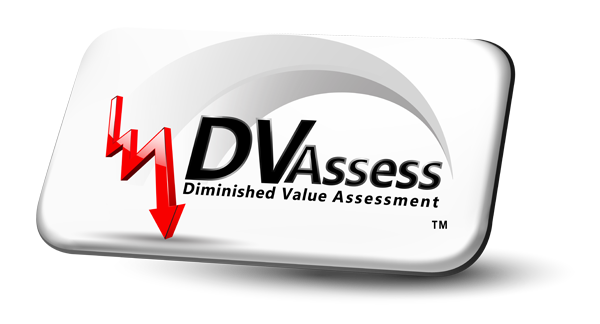Understanding the Diminishing Value of a Car: A Comprehensive Guide

When a car is involved in an accident, its value inevitably declines, regardless of the quality of repairs. This phenomenon is known as diminished value, and it can affect any vehicle post-accident. In this section, we’ll explore the concept of diminished value, its implications for car owners, and why it’s an important factor to consider in the used car market. Additionally, we’ll discuss how this decrease in value can affect future sales and insurance premiums, emphasizing its significance in the overall financial health of car ownership.
The Mechanics Behind Car Depreciation
Depreciation is an inevitable aspect of car ownership, with every vehicle experiencing a decline in value over time. This process is influenced by a range of factors, including age, mileage, and general wear and tear. However, when a car is involved in an accident, the depreciation process can accelerate significantly. Understanding standard depreciation is key, but recognizing how accidents amplify this decline is crucial. Different vehicles also depreciate at varying rates, influenced by brand reputation, market demand, and technological advancements. Grasping these variables helps car owners comprehend the impact of diminished value within the broader scope of vehicle depreciation.
Moreover, market demand plays a significant role in a car’s depreciation trajectory. Certain models may hold their value better due to popularity or reliability, while others might depreciate more rapidly. This variance highlights the importance of considering long-term value retention when purchasing a vehicle, especially given the potential for accidents to exacerbate depreciation.
Accidents and Value: More Than Meets the Eye
The impact of a car accident extends far beyond physical damage. There’s a psychological element at play affecting consumer perception, which significantly contributes to a vehicle’s diminished value. Even after repairs, the knowledge that a car has been in an accident can deter potential buyers, leading to a tougher selling process and potential financial loss for the seller. This section aims to shed light on these often-overlooked aspects of diminished value, emphasizing that the implications of an accident are not just about the repair costs but also about the car’s perceived reliability and safety.
The market’s penalization of accident history is another critical factor. Despite top-notch repairs, a vehicle with a history of accidents often faces skepticism from buyers, resulting in a lower resale price compared to a similar, accident-free vehicle. This devaluation underscores the importance of understanding diminished value from a broader perspective, incorporating both tangible and intangible factors that influence a car’s market worth.
Calculating Diminished Value: Factors and Formulas
Calculating diminished value is a nuanced process that considers various factors, including the vehicle’s age, mileage, and the extent of damage. Understanding these elements is essential for car owners when assessing their vehicle’s worth post-accident. Various methods and formulas are employed to determine diminished value, each with its specific focus and approach. For instance, the 17c formula, derived from a Georgia court case, is a common method used by many insurance companies, but it’s not the only one. Other methods may consider the car’s inherent loss of value or its immediate resale value post-repair.
Each formula offers a different perspective on diminished value, and understanding these can help car owners set realistic expectations regarding their vehicle’s worth after an accident. It’s also important to note that these formulas can produce varied results, underscoring the need for car owners to be aware of the different approaches and choose the one most applicable to their situation.
The Role of Professional Appraisals
In the context of diminished value, professional appraisals are invaluable. An expert appraisal not only lends credibility to an insurance claim but can also significantly influence the car’s resale value. A qualified appraiser brings expertise in evaluating a vehicle’s condition, market value, and the extent of damage, providing a more accurate and objective assessment of its diminished value. This section emphasizes the importance of seeking professional appraisals and the impact they have on the accuracy of diminished value assessments.
The credentials and experience of a professional appraiser are critical. Their assessment goes beyond superficial analysis, delving into the intricacies of the car’s condition, model, age, and market trends. This in-depth evaluation is essential for car owners looking to file an insurance claim or sell their vehicle post-accident. A professional appraisal not only aids in securing a fair insurance settlement but also helps in setting a realistic resale price, ensuring that the car owner is adequately compensated for their vehicle’s diminished value.
Navigating Insurance Claims for Diminished Value
Filing an insurance claim for diminished value can be a complex process. This section will provide a step-by-step guide on approaching insurance companies, outlining the necessary documentation and arguments to present a strong claim. It’s important for car owners to understand their insurance policy’s coverage regarding diminished value and be prepared to provide detailed evidence supporting their claim.
Often, insurance companies may push back against diminished value claims, presenting challenges for car owners. This section will offer strategies for dealing with such pushbacks, emphasizing the importance of being well-prepared with documentation, appraisals, and a sound understanding of insurance policies. Overcoming these obstacles is key to securing fair compensation for the diminished value of a vehicle.
Preventing Excessive Diminished Value
While some loss in a car’s value post-accident is inevitable, there are ways to mitigate excessive depreciation. This section will outline preventative measures such as choosing models known for their value retention, investing in comprehensive insurance coverage, and maintaining the vehicle’s condition. These strategies can help protect a car’s value and minimize the financial impact of diminished value.
Additionally, the role of regular maintenance and certain upgrades or modifications will be discussed. Understanding how these factors can influence a car’s value, either positively or negatively, is crucial for car owners. This section aims to empower car owners with strategies to protect their investment and ensure their vehicle retains as much value as possible.
The Takeaway for Car Owners
In conclusion, understanding the concept of diminished value and its impact on car ownership is essential. This article emphasizes the importance of being informed and proactive, whether through seeking professional appraisals or maintaining the vehicle’s condition. The final takeaway is that while dealing with diminished value can be complex, armed with the right knowledge and resources, car owners can effectively navigate its challenges.
The goal of this guide is to provide car owners with a thorough understanding of diminished value, equipping them with the tools and confidence needed to protect their vehicle’s worth in the dynamic automotive market. Understanding these nuances not only helps in dealing with current situations but also in making informed decisions for future car purchases and insurance coverage.
Diminished value refers to the reduction in a car’s resale value after it has been involved in an accident and subsequently repaired. Even if the repairs are done professionally, the vehicle’s market value decreases because of the accident history, which can affect future sales and potentially your insurance premiums.
Car depreciation is the gradual loss of a vehicle’s value over time due to wear and tear, age, and market conditions. Diminished value is a specific type of depreciation that occurs rapidly as a result of an accident. It’s the immediate loss in value that a vehicle suffers after being damaged and repaired.
A past accident can affect a car’s value due to consumer perception. Potential buyers are often willing to pay less for a vehicle that has been involved in an accident due to concerns about the integrity of the repairs, hidden damages, or future reliability issues, even if the car has been fully restored to its original condition.
The timeframe to file a diminished value claim varies by location and insurance policy, but it’s generally recommended to file as soon as possible after the vehicle is repaired. Check with your insurance company and local regulations to understand the specific statute of limitations in your area.
The timeframe to file a diminished value claim varies by location and insurance policy, but it’s generally recommended to file as soon as possible after the vehicle is repaired. Check with your insurance company and local regulations to understand the specific statute of limitations in your area.




